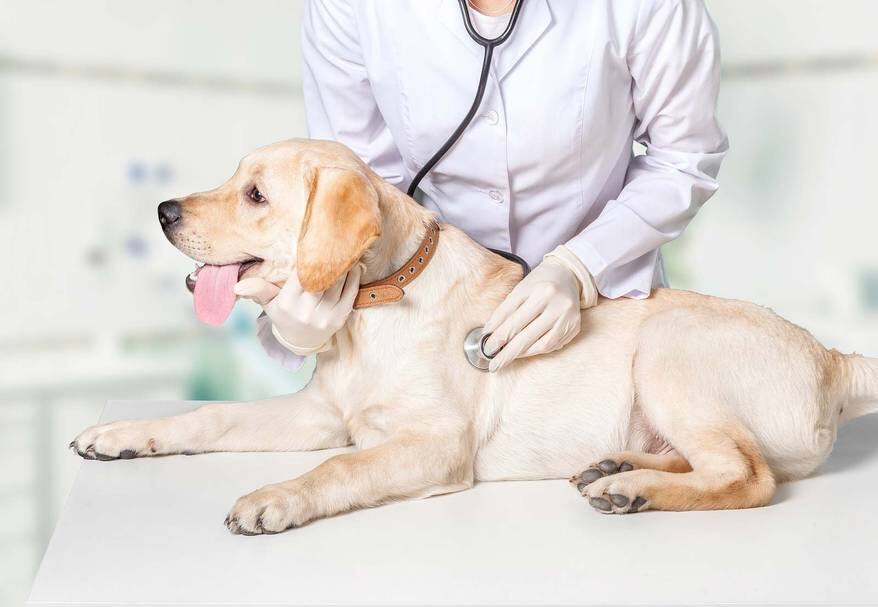
-
Find the right food for your pet
Take this quiz to see which food may be the best for your furry friend.
Find the right food for your pet
Take this quiz to see which food may be the best for your furry friend.
Featured products
 Adult 7+ No Corn, Wheat, Soy Chicken & Brown Rice Dog Food
Adult 7+ No Corn, Wheat, Soy Chicken & Brown Rice Dog FoodSupports energy level and beautiful coat in mature dogs
Shop Now Adult 7+ Perfect Digestion Chicken, Whole Oats & Brown Rice Recipe Dog Food
Adult 7+ Perfect Digestion Chicken, Whole Oats & Brown Rice Recipe Dog FoodScience Diet's breakthrough nutrition supports ultimate digestive well-being & healthy microbiome for dogs age 7+
Shop Now Adult Perfect Weight & Joint Support Chicken Recipe Dry Dog Food
Adult Perfect Weight & Joint Support Chicken Recipe Dry Dog FoodThis weight management and mobility support dog food was created with Hill’s unique understanding of the biology of overweight dogs.
Shop NowFeatured products
 Adult Perfect Digestion Chicken, Barley & Whole Oats Recipe Cat Food
Adult Perfect Digestion Chicken, Barley & Whole Oats Recipe Cat FoodScience Diet's breakthrough nutrition supports ultimate digestive well-being & healthy microbiome
Shop Now Adult Savory Chicken Entrée Cat Food
Adult Savory Chicken Entrée Cat FoodPrecisely balanced nutrition with the delicious taste of savory minced chicken to help fuel the energy needs of cats during the prime of their life
Shop Now Perfect Weight Salmon & Vegetable Canned Cat Food
Perfect Weight Salmon & Vegetable Canned Cat FoodOver 70% of cats lost weight within 10 weeks when fed this nutrition
Shop Now -
Dog
- Dog Tips & Articles
-
Health Category
- Weight
- Food & Environmental Sensitivities
- Urinary
- Digestive
- Joint
- Kidney
-
Life Stage
- Puppy Nutrition
- Adult Nutrition
- Senior Nutrition
Cat
- Cat Tips & Articles
-
Health Category
- Weight
- Skin & Food Sensitivities
- Urinary
- Digestive
- Kidney
-
Life Stage
- Kitten Nutrition
- Adult Nutrition
Featured articles
 Pet Food Storage Tips
Pet Food Storage TipsDiscover how and where to store your dry, as well as canned, dog and cat food. Learn how to find the "best before" dates on all Hill's pet food packaging.
Read More The Incredible Science Behind Your Pet's Microbiome
The Incredible Science Behind Your Pet's MicrobiomeLearn what a pet's microbiome is, how it contributes to your pet's gut & overall health, and why nutrition is important in maintaining healthy microbiomes.
Read More Water
WaterDiscover why water is the most important nutrient for your dog or cat to live a healthy life. Find out how much water your pet should consume each day.
Read More -
Find the right food for your pet
Find the right food for your pet


Is your dog not feeling so well? Could he be suffering from one of the many digestive problems in dogs? If he's vomiting or you notice problems with his stools, he may be suffering from issues with his gastrointestinal or digestive system.
Gastrointestinal problems in dogs happen for a variety of reasons, and any one of them may cause your dog to not feel well. Did he eat something new? If he ingested something other than dog food, he may be allergic, intolerant, unable to digest it, or even worse, it could have given him an infection. Also, some breeds, such as German shepherds, Great Danes, and Schnauzers, are more prone to digestive issues.
Here are seven digestive problems in dogs you should be aware of. It is important to learn about what could make your dog sick, so you can prevent it. Also, if gastrointestinal problems in dogs are already plaguing your pet, you'll learn what you can do to help.
1. Diarrhea
You may notice that your dog is having loose, liquid stools. Diarrhea is a common ailment for dogs and other animals and is caused by many different things. Here's a list of a few different reasons diarrhea occurs:
- stress
- spoiled/rotten food
- allergies to specific ingredients in foods
- changing dog foods too quickly
- internal parasites
- infections
- failing organs
2. Small intestinal malabsorption
Malabsorption is a type of digestive problem in dogs. If your dog is experiencing small intestine malabsorption, it means he either isn't digesting his food, or he isn't absorbing the vitamins and minerals after digestion.
3. Colitis
Colitis, an inflammation of the membrane lining of the colon, is among the common digestive problems in dogs. It also inflames the large intestine, so your dog may experience painful stools or diarrhea. The inflammation and irritation can be either chronic or acute.
Whipworms can be the cause for colitis. Also, if your dog is suffering from tumors or polyps, they may also irritate the colon, causing colitis. A change in food, ingesting something other than food, or an allergy to a specific food is often the culprit for a colitis attack.
4. Acute gastroenteritis
Usually a temporary issue, acute gastroenteritis causes inflammation in the stomach or intestines. It usually occurs when a dog eats high-fat or spoiled food. It can also occur if a dog eats anything poisonous or something he is allergic to. Internal parasites can be a harbinger to gastroenteritis. Stress is another trigger.
5. Hemorrhagic gastroenteritis
Similar to acute gastroenteritis, hemorrhagic gastroenteritis is usually a temporary issue, but it can be fatal if untreated. Hemorrhagic gastroenteritis causes severe vomiting and bloody stools, usually in diarrhea. It can be brought on by ingestion of foods or substances that your dog shouldn't be eating or is allergic to, as well as pancreatitis and other autoimmune illnesses.
6. Pancreatitis
Pancreatitis is an infection or inflammation of the pancreas. The reasons why pancreatitis occurs are unknown, though high-fat food may be to blame. Other issues that may cause the condition include trauma to the pancreas, infections, or a disease.
7. Exocrine pancreatic insufficiency
Exocrine pancreatic insufficiency occurs when your dog's pancreas fails to produce enough digestive enzymes. Weight loss, an increase in appetite, and large, soft stools are the major symptoms. If you've noticed an extreme weight loss in your dog, he may not be producing enough enzymes in his pancreas.


Tasty Tips
How can you help?
Know your dog's baseline
Digestive problems in dogs can appear suddenly, so always be on the lookout for ways to protect your pet. The best way you can take care of your dog is knowing what his normal behavior and health looks like. How many times a day does your dog normally defecate? What do his stools generally look like? While gross to think about, and even more so to monitor, it can be a very vital piece in maintaining your dog's health. Talk to your vet more about what a dog's stool should look like when healthy to better understand what to look for if you notice abnormalities in your dog's behavior. Does he ever throw up? While vomiting doesn't always scream a larger digestive issue, it is one of the more common signs that something is wrong. If you notice this happening frequently, it is a good time to get your pup to the vet to have him checked out. How much does he eat and drink? These are all questions you need to know the answer to, so that you can identify when something is wrong.

Monitor what your dog eats at all times
Make sure your dog receives well-balanced nutrition and doesn't come in contact with any food he shouldn't be eating. At the same time, don't let your dog swallow anything he isn't supposed to, even if it's not food. Certain plants or foreign objects will make your dog extremely ill.
Healthy and easily digestible dog food will go a long way for an anxious dog's belly. Also, regular preventative trips to the veterinarian will keep you on top of any health issues your dog may be facing.
Keep your dog hydrated
A dog suffering from a gastrointestinal or digestive issue needs to stay hydrated, especially if he is vomiting or has diarrhea. One thing to keep in mind: If you notice that your dog begins drinking less frequently and less water or he is lapping it up in an extreme amount, it's a sign that something is amiss. Being well-hydrated is a key to keeping your dog healthy.
Be supportive and calming
Gastrointestinal problems in dogs can be upsetting for the entire family. Your once happy, playful dog is suddenly lethargic, withdrawn, and possibly vomiting or ill with diarrhea. Because stress can cause digestive problems, try to keep your dog calm and well-adjusted. In times of high stress, you may notice your dog having more stomach issues. Find coping mechanisms that work for your dog, such as petting him or scratching his belly.
Contact your veterinarian
If you even suspect that your dog is suffering from a digestive or gastrointestinal issue, contact your vet immediately. Many of these conditions are serious, and your dog will need to be monitored closely, and possibly be treated with medications.
In the case that your dog is suffering at night or on the weekend, don't wait until the vet office is open. Consider visiting an urgent care facility.


Erin Ollila believes in the power of words and how a message can inform—and even transform—its intended audience. Her writing can be found all over the internet and in print, and includes interviews, ghostwriting, blog posts, and creative nonfiction. Erin is a geek for SEO and all things social media. She graduated from Fairfield University with an M.F.A. in Creative Writing. Reach out to her on Twitter @ReinventingErin or learn more about her at http://erinollila.com.
Related products

This weight management and mobility support dog food was created with Hill’s unique understanding of the biology of overweight dogs.

Supports energy level and beautiful coat in mature dogs

Science Diet's breakthrough nutrition supports ultimate digestive well-being & healthy microbiome for dogs age 7+

Delicious braised beef paired with tender vegetables in a succulent stew
Related articles

Understand the role that Omega-6 and Omega-3 fatty acids play in your dog's overall health, and how you can ensure they are getting enough.

Learn about Hill's puppy food and the nutritional benefit & high quality ingredients that it contains for your pup.

Proper nutrition for your pregnant or nursing dog is vital to her and her puppy's health. Learn what you should do provide her with the proper nutrients.

Large and giant breed puppies have different nutritional needs than other dogs. Learn how to provide the special care they need to grow up big and strong.

Put your dog on a diet without them knowing
Our low calorie formula helps you control your dog's weight. It's packed with high-quality protein for building lean muscles, and made with purposeful ingredients for a flavorful, nutritious meal. Clinically proven antioxidants, Vitamin C+E, help promote a healthy immune system.
Put your dog on a diet without them knowing
Our low calorie formula helps you control your dog's weight. It's packed with high-quality protein for building lean muscles, and made with purposeful ingredients for a flavorful, nutritious meal. Clinically proven antioxidants, Vitamin C+E, help promote a healthy immune system.

